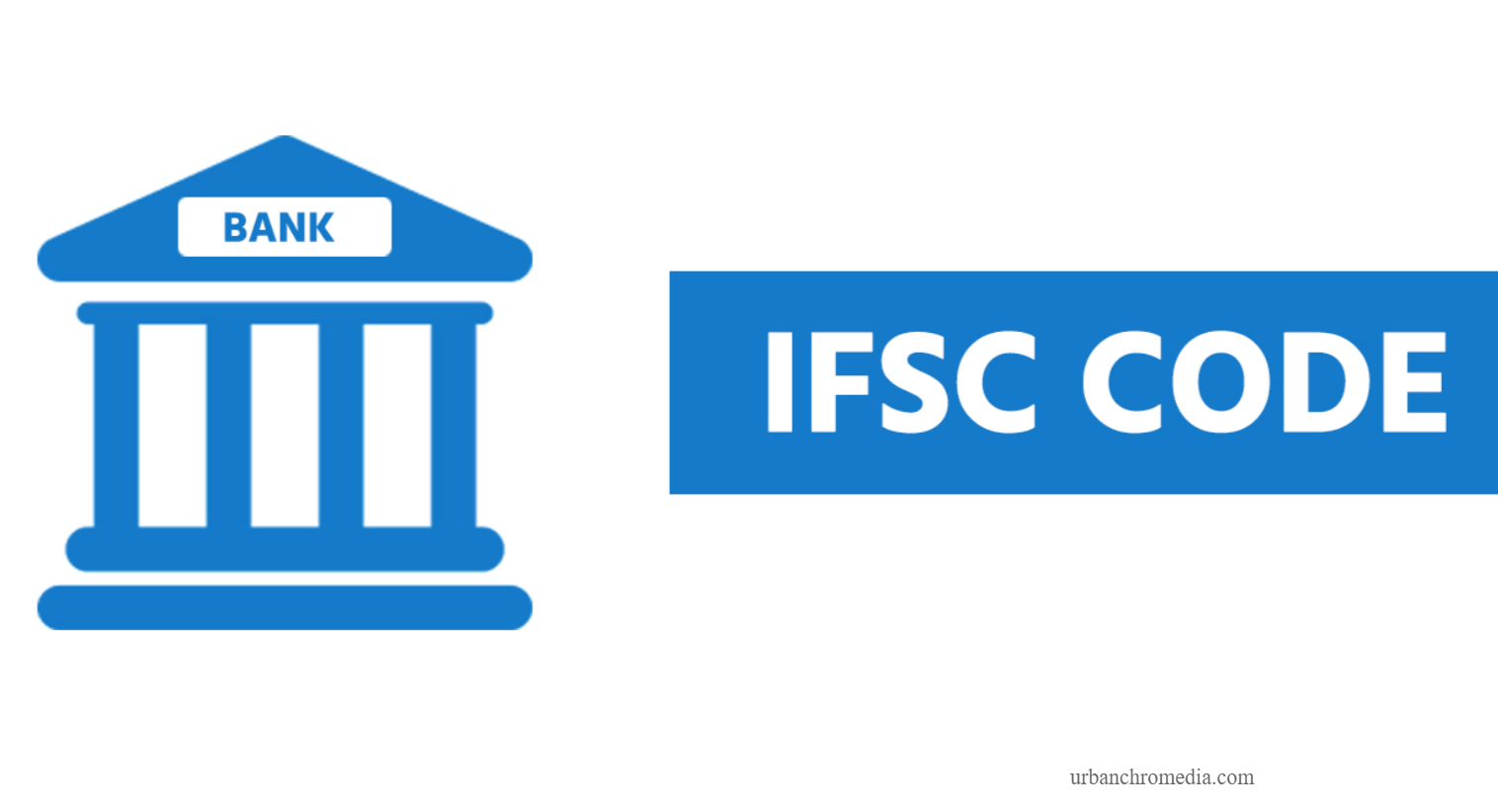
IFSC Code Explained: IFSC Full Form, Meaning, Uses and How to Find It
The ‘IFSC Code’ is a part of our banking vocabulary, especially during fund transfers and cheque transactions. But have you ever wondered about the origins and goals driving this code system? Let’s explore the history and meaning of the IFSC.
Understanding IFSC Code
The Indian Financial System Code, commonly known as IFSC, consists of an 11-digit alphanumeric sequence. Uniquely assigned to each bank branch in India, this code plays a crucial role in facilitating online money transfers through NEFT, RTGS, and IMPS. Its primary function is to pinpoint the specific source and destination bank branches involved in transactions.
Full Form of IFSC Code
IFSC Full Form is Indian Financial System Code, an exclusive 11-character code designated by the Reserve Bank of India (RBI). This code is instrumental in identifying Indian bank branches for electronic fund transfers like NEFT, RTGS, and IMPS.
IFSC Code Format
IFSC Code: XYZZ012345
Explanation:
- The initial four characters denote the bank identifier: XYZZ
- The fifth character is consistently zero
- The concluding six characters serve as the distinctive branch code: 12345
It’s important to emphasize that this is an illustrative IFSC code, as authentic codes are exclusively designated by the Reserve Bank of India (RBI) to individual banks and their branches. The composition of characters within the code is arbitrary and serves the purpose of identification.
The Significance of IFSC Codes
Having gained an understanding of IFSC, let’s delve into its significance within the banking system.
- The IFSC code assumes a crucial role in distinctively identifying both the bank and the specific branch where the recipient’s account is situated, guaranteeing precise fund transfers and averting potential errors or delays. Take, for instance, the IFSC code for the Nariman Point branch of DBS Bank: DBSS0IN0811. In this code, ‘DBSS’ denotes the bank name, ‘0’ is reserved for future use, and ‘IN0811’ signifies the branch code.
- Furthermore, IFSC facilitates seamless, paperless financial transactions through electronic payment tools like RTGS, IMPS, and NEFT. These tools enable rapid, same-day transfers between different banks, eliminating the necessity for physical cheques or cash. This digital approach not only expedites the process but also aligns with environmentally conscious practices.
- The adaptability of IFSC extends to various online transactions, including bill payments, insurance premiums, loan EMIs, taxes, e-commerce transactions, and peer-to-peer transfers. This versatility empowers users to conveniently manage their banking affairs anytime and anywhere, ensuring a streamlined and hassle-free experience.
- Beyond its transactional role, IFSC serves as a vital instrument for monitoring and tracking financial activities, mitigating the risk of fraud or unauthorized fund usage. By empowering the Reserve Bank of India (RBI) to oversee and regulate electronic transactions in the financial sector, IFSC contributes to heightened transparency, accountability, and consumer safeguarding within the banking landscape.
Why Need an IFSC Code
The IFSC Code: Facilitating Effortless Banking Transactions
- Ensuring Operational Smoothness: The IFSC code assumes a pivotal role in ensuring the seamless flow of banking transactions, empowering the RBI to oversee and regulate crucial operations such as NEFT, RTGS, and IMPS for a harmonious financial landscape.
- Essential for Digital Fund Transfers: The IFSC code becomes a mandatory requirement when initiating electronic fund transfers, serving as a key prerequisite to ensure the smooth execution of transactions and guaranteeing the accuracy of fund routing.
- Monitoring Financial Dynamics: Through the IFSC code, the RBI gains the ability to effectively track, monitor, and govern all electronic financial transactions. This capability enhances regulatory oversight, contributing to the robust management of the financial system.
- Validating Precision in Fund Routing: Acting as a pivotal confirmation parameter, the IFSC code ensures the accuracy of incoming funds, providing assurance that the money has been directed to its intended destination. This validation mechanism adds an extra layer of security and precision to electronic transactions.
The Functionality of IFSC Codes
This unique 11-character alphanumeric code plays a pivotal role in identifying a particular bank branch and facilitating electronic fund transfers. Accurate fund transfers through NEFT/RTGS/IMPS require the provision of both the account number and the branch-specific IFSC. For instance, if you intend to transfer funds to your friend’s account in HDFC Bank’s Sector 18, Noida branch, you must input their account number (xxxx xxxx xxxx xxxx) and the IFSC (HDFC0000128).
IFSC codes transcend the realm of fund transfers; they also find application in diverse financial activities such as investing in mutual fund schemes or acquiring insurance plans for yourself and your loved ones. The IFSC ensures the proper deduction from the correct account and the accurate crediting of funds to the designated beneficiary. Oversight by the RBI’s National Clearing Cell enhances the assurance of accuracy and security in these transactions.
Locating your bank branch’s IFSC is conveniently achievable through resources such as your chequebook, passbook, or monthly account statement. Alternatively, an online search by entering specific details like the bank name, state, district, and branch name can provide the necessary IFSC information.
Each bank branch boasts a unique IFSC Code, serving as a crucial distinguishing factor from other branches of the same bank or different banks. This distinctiveness is instrumental in preventing any confusion or errors in electronic transactions. Therefore, meticulous verification of the IFSC is essential before initiating any fund transfer or online purchase.
Illustration of an IFSC Code
As an illustration, consider the IFSC code for the Langford Road branch of HDFC Bank, which is HDFC0000427. In this code, ‘HDFC’ signifies the bank name, ‘0’ is reserved for future use, and ‘0000427’ denotes the branch code.
Essential Features of IFSC Codes
- IFSCs play a crucial role in ensuring the seamless and effortless transfer of funds online within India. Their mandatory use in electronic transactions via NEFT, RTGS, and IMPS is grounded in their ability to precisely identify the origins and destinations of funds.
- The Reserve Bank of India (RBI) employs IFSCs as a tool to meticulously monitor banking transactions, thereby ensuring their accurate processing. The incorporation of IFSCs substantially diminishes the likelihood of errors in fund transfers by meticulously verifying the bank and branch details of both the sender and the recipient.
- Going beyond transactional efficiency, IFSCs significantly bolster the security of fund transfers by acting as a robust deterrent against fraudulent activities and the unauthorized use of funds. As a protective measure, IFSC demands the accurate entry of the code, along with other particulars like account number and name, thwarting unauthorized transactions. Moreover, IFSC proves instrumental in the monitoring and tracing of transactions, offering valuable support in the resolution of disputes or grievances.
IFSC Code Transactions: How to Transfer Money
IFSC serves as the key mechanism for executing fund transfers across three principal electronic modes: NEFT, RTGS, and IMPS. These electronic fund transfer systems provide a convenient means for seamlessly moving money from one account to another. By requiring accurate details such as bank account numbers and the bank-specific IFSC for authorization, these systems effectively minimize the likelihood of errors in transactions.
National Electronic Fund Transfer (NEFT) Transaction using IFSC Code
NEFT, short for National Electronic Fund Transfer, stands as a comprehensive nationwide electronic fund transfer system, facilitating the seamless transfer of funds between different bank accounts. This secure and convenient process is under the vigilant monitoring of the RBI, ensuring a smooth and trouble-free experience. NEFT settlements are conducted in a batch-wise format, allowing funds to be transferred to accounts across all Indian NEFT-enabled banks. To initiate an NEFT transfer, you’ll require key details such as the receiver’s account number and name, coupled with the bank branch name and its corresponding IFSC code.
Real Time Gross Settlement (RTGS) Transaction using IFSC Code
RTGS, which stands for Real Time Gross Settlement, serves as a prompt and efficient fund transfer method, enabling the instantaneous sending and receiving of money without any delay. This system ensures that the funds you send reach the beneficiary immediately upon initiation of the transaction. Unlike batch-wise systems, the processing of transactions through RTGS occurs on an individual basis, contributing to its swift and real-time nature.
Immediate Payment Service (IMPS) Transaction using IFSC Code
Immediate Payment Service (IMPS) functions as an instantaneous electronic fund transfer mechanism, ensuring swift crediting of funds to the payee or beneficiary account in real-time. The process is available for execution 24/7, allowing transactions to be conducted at any time. IMPS facilitates interbank transfers through diverse channels, including SMS, ATM, mobile banking, NetBanking, and more. Notably, the principal advantage of IMPS, distinguishing it from RTGS and NEFT, lies in its continuous availability, allowing users to utilize its services around the clock.
How & Where can you find your IFSC Code
If you’re curious about locating an IFSC code, here are four approaches to discover the IFSC of a bank branch:
On Cheque Book
The IFSC code is typically printed on the top left corner of the cheque leaf, situated at the end of the branch address.
On Passbook
The account and branch details, including the IFSC, are generally printed on the top right corner of the front sheet of your bank passbook.
On RBI Official Website
On the RBI website, there is a dedicated tab for ‘IFSC’ that allows you to search for the IFSC by entering either the bank or branch name.
With Branch Locater sites
Most financial institutions provide a Branch Locator tool on their official websites, allowing users to discover the IFSC for a particular branch. Simply inputting details such as the state, city, and branch name into the designated fields can yield the desired results. For instance, entering “Uttar Pradesh” in the state field, “Lucknow” in the city field, and “Lucknow Main Branch” in the branch name field would display the IFSC for that specific branch on your screen.
Entering the correct IFSC is paramount during online transfers, ensuring the seamless delivery of funds to the intended recipient. An inaccurate IFSC entry leads to the rejection of the transaction by your bank, emphasizing the importance of precision in these details.
Navigating IFSC Search: Things to Keep in Mind
Locating an IFSC using your account number is not feasible. The account number remains unique to your account and remains unchanged even if you switch branches. However, the IFSC undergoes a change when you transition to a different branch.
IFSC and SWIFT codes serve distinct purposes in online fund transfers, each with its own set of differences. IFSCs are employed for domestic transfers within India, distinguishing bank branches with 11-digit alphanumeric codes. Conversely, SWIFT codes, which can be 8 or 11 digits alphanumeric, are utilized for international transfers spanning across countries, identifying either a bank or a specific bank branch on a global scale.
Frequently Asked Questions Regarding IFSC Code
How can I obtain my IFSC code?
Typically, you can locate the IFSC in the bank-issued chequebook or on the front page of your passbook.
What purpose does the IFSC code serve?
It is employed for conducting electronic fund transfers within India through IMPS, NEFT, and RTGS.
What does the term IFSC codes signify?
IFSC is a distinctive identification code utilized for the precise identification of both the bank and branch associated with a specific bank account. This code is applied in various electronic bank transfer systems across India.
Is the IFSC code exclusively applicable to India?
Indeed, the IFSC code is exclusively utilized for transactions conducted within the boundaries of India. For international transactions, the SWIFT code takes precedence.
Is providing the bank IFSC code considered safe?
Certainly, it is safe to share your bank’s IFSC code. Completing a transaction requires not only the IFSC code but also knowledge of your bank account number and name.
Is it possible to initiate a money transfer without using an IFSC code?
No, the IFSC code is essential for online transactions through NEFT, IMPS, or RTGS.
Is the IFSC code consistent across all branches of a bank?
Yes, it remains the same for all customers associated with a specific branch of a particular bank. For instance, all customers of SBI Lucknow’s Main Branch will share the same IFSC.







